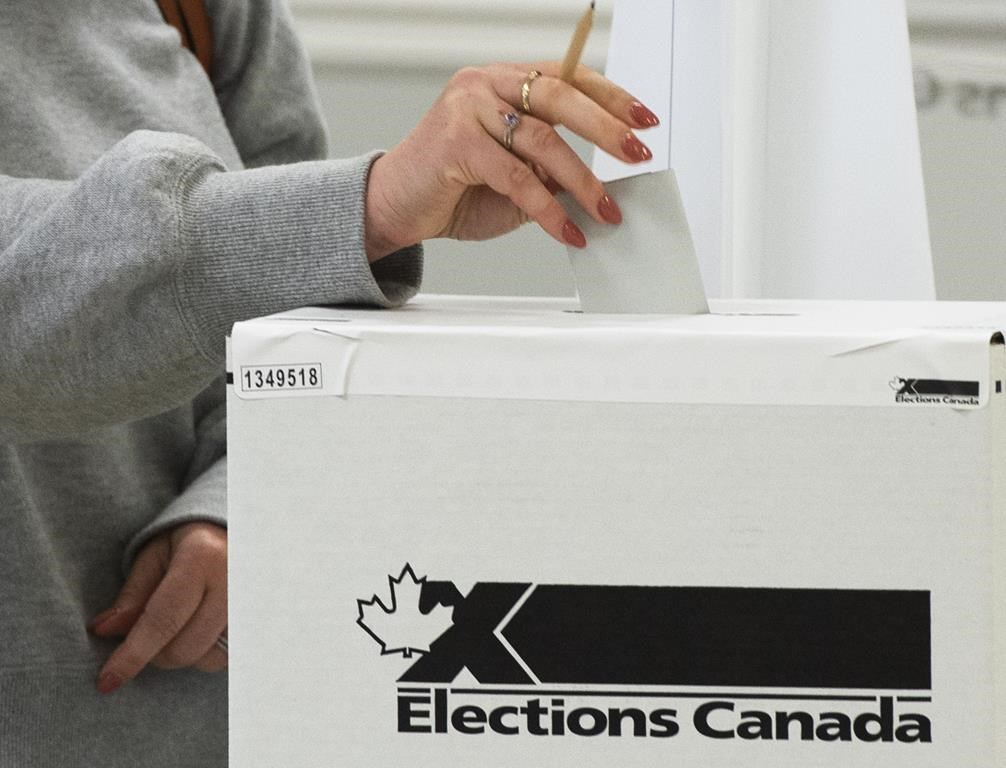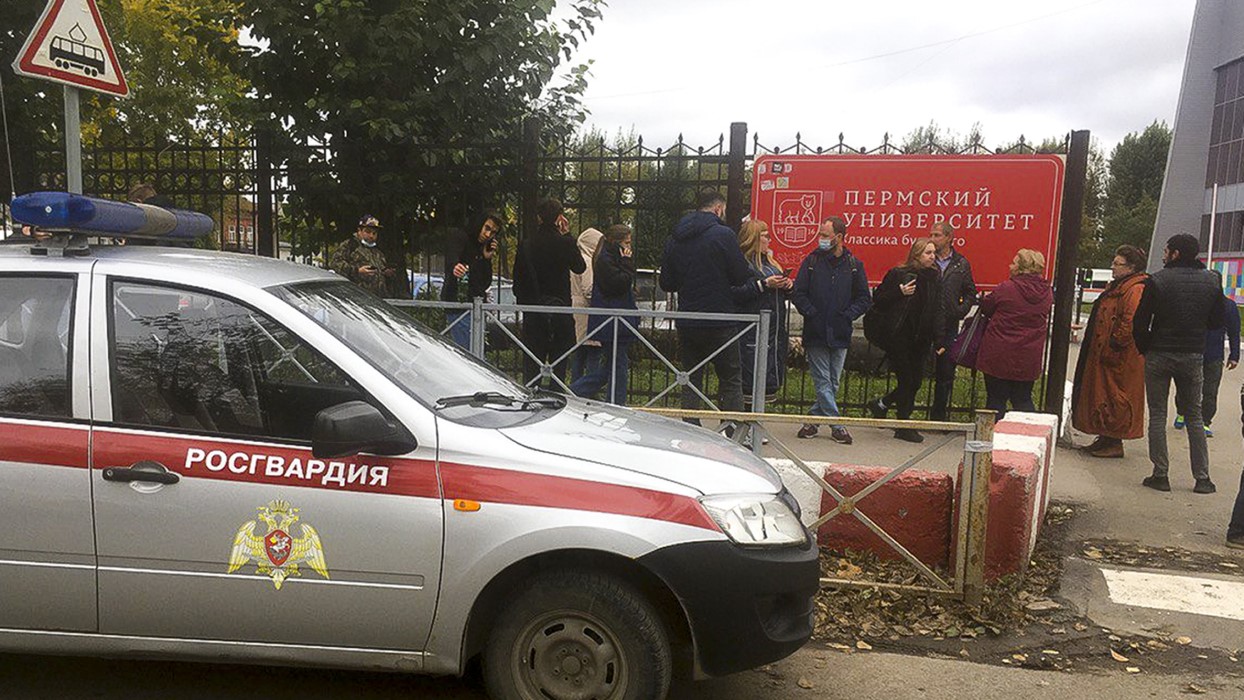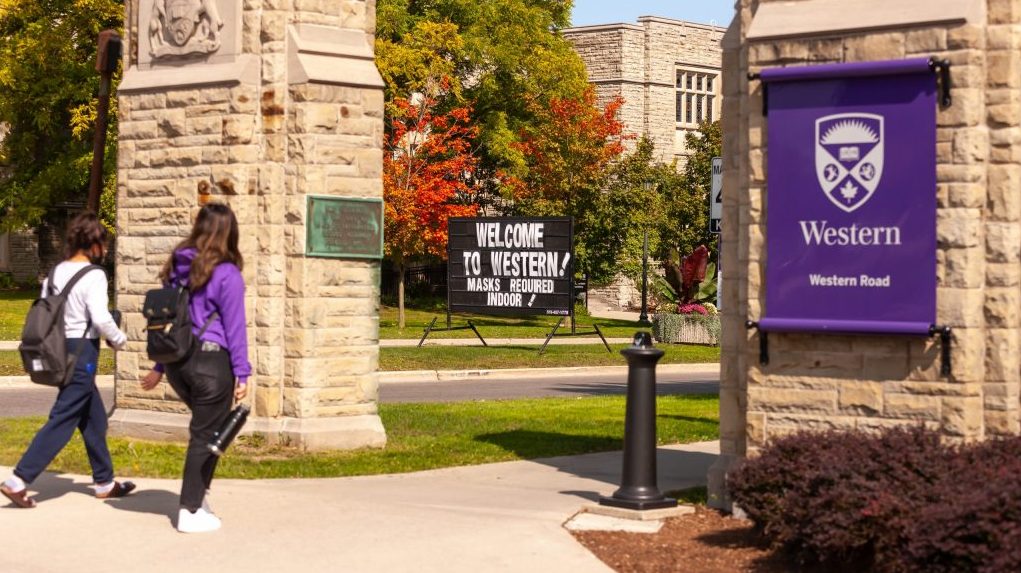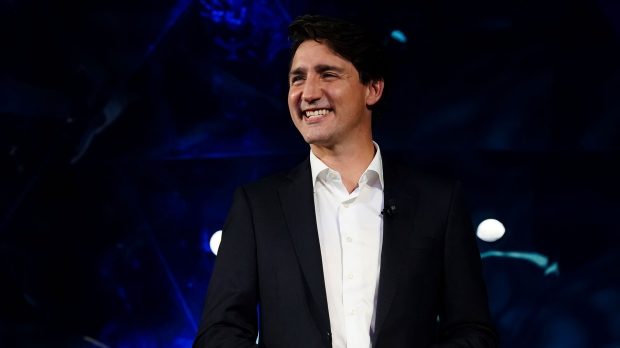In today’s Big Story podcast, a Liberal minority government. Likely within a few seats of where we started, 37 days ago. Did this election matter? What did it reveal about Canada’s political mood? About the health of our electoral system? And about the future of the two leaders who went head to head for the past six weeks? Turns out, more than you might think.
GUEST: David Moscrop
You can subscribe to The Big Story podcast on Apple Podcasts, Google and Spotify
You can also find it at thebigstorypodcast.ca.

Despite dealing with a handful of disruptions at various stations across the country, Toronto and Greater Toronto Area (GTA) residents headed out to the polls on Monday.
CityNews is projecting the Liberals have won enough seats to stay in power with a minority government but have fallen short of winning a majority.
For Toronto and GTA ridings, there wasn’t much in terms of surprises of altered outcomes. Here in Toronto, the Liberals had hoped to pick up some of the 15 seats they need to form a majority and entered the night widely expected to sweep every riding in the city, all considered red heavy.
Toronto-Danforth saw Julie Dabrusin win her riding while Melissa Lantsman of the Conservatives managed to hold her riding in Thornhill.
The Liberals’ Anita Anand was declared the winner in Oakville; a significant development for Canada’s vaccine minister. Anand was a rookie MP after winning in 2019 when she was appointed.
She quickly became in charge of the country’s efforts to secure COVID-19 vaccines and was often on the campaign trail with Trudeau.
Two notable flips came in Markham-Unionville, where Liberal Paul Chiang took his riding; a region that strongly leaned in the Tories’ favour heading into the election. The other was Aurora-Oak Ridges-Richmond Hill, which goes to Leah Taylor Roy.
The Conservatives had a 1,000 vote lead in that region back in 2019.
In Toronto, former “The Social” host and rookie MP, Marci Ien, took her Toronto Centre riding by ensuring a win for the Liberals. Chrystia Freeland, meanwhile, won re-election in her downtown Toronto riding of University-Rosedale.
The deputy prime minister and finance minister will now have a chance to keep building a national child-care system announced in her April budget.
According to Elections Canada, almost 6.8 million people voted early, most of them at advance polls over a week ago, and the rest through special ballots cast by mail or at Elections Canada offices.

Environment Canada has issued a special weather statement for Toronto and the GTA, calling for “significant” rainfall for the region.
Showers and thunderstorms are forecast to begin late Tuesday evening and continue until at least Wednesday night.
The national weather agency said the rain is stemming from a cold front and a low pressure system from the U.S. Midwest.
Rainfall amounts of 40-60 millimetres are expected by early Thursday morning.
As the system moves through the region, rainfall warnings may be issued for some areas.

Canada’s first-ever pandemic election culminates today as Canadians from coast-to-coast go to the polls to choose the 338 members of Parliament to sit in the House of Commons.
Elections Canada says almost 6.8 million people voted early, most of them at advanced polls over a week ago, and the rest through special ballots cast by mail or at Elections Canada offices.
But a majority of Canada’s more than 30 million eligible voters will mark their ballots today.
Elections Canada encourages voters to wear masks but only requires them in places where they are mandated by provincial rules. Proof-of-vaccination regulations do not apply at polling stations in any province where they currently exist.
Polling stations are open for 12 hours, but the opening times vary by region, starting as early as 7 a.m. PST in British Columbia and as late as 9:30 a.m. EDT in Ontario and most of Quebec.
Most riding winners will be known by the end of the evening, but Elections Canada is also warning it could take up to four days to finish counting all the special ballots, meaning some close races may not have official winners for several days.

In today’s Big Story podcast, this was the shortest possible election Canada could have had — so why did it feel so long? Maybe because nobody really wanted it. As Canadians (at least those who haven’t voted in advance) head to the polls today, we offer you a rapid recap of the highs and (mostly) lows of this campaign. If you have mercifully had other things to do all day, this will give you everything you need to know. If you have been paying attention this whole time, you will marvel at how long ago the beginning of a very short election feels…
GUEST: Cormac Mac Sweeney
You can subscribe to The Big Story podcast on Apple Podcasts, Google and Spotify
You can also find it at thebigstorypodcast.ca.

The federal election campaign entered its final hours on Sunday with party leaders making last-minute appeals in whirlwind tours of swing ridings, all while still trying to convince voters to buy into their version of what this vote is all about.
NDP leader Jagmeet Singh, who is hopping around seven ridings in the metro Vancouver region, and Conservative Leader Erin O’Toole, who is spending his final campaign day in the Greater Toronto Area, both want this vote to be a referendum on the leadership of their chief rival, Liberal Leader Justin Trudeau.
Trudeau, following a punishing cross-country Sunday schedule with in-person and virtual events in every province but Saskatchewan, wants it to be about who Canadians trust the most to lead them out of the COVID-19 pandemic.
Jack Jedwab, president of the Association of Canadian Studies, said the election has not been as much about the pandemic response as Trudeau likely had hoped.
“Ideally for the Liberal standpoint, what should have been the key determining issue in the election is ‘are you satisfied with their handling of COVID,” Jedwab said in an interview. “The objective would have been to try to align the satisfaction rates with voter choices, but that isn’t what happened.”
Instead, he said, the pandemic became just one of five or six issues voters are considering when deciding how to cast their ballots, including child care, the environment, Afghanistan and guns.
A new poll for Jedwab’s organization, conducted by Leger, found while 60 per cent of respondents are satisfied with how the federal government handled the pandemic, just 40 per cent are letting that opinion influence their vote. Jedwab said that’s down from 48 per cent who said at the end of August that the pandemic response was affecting their choice.
The most recent poll was conducted for the association between Sept. 10 and 12, but can’t be assigned a margin of error because online polls aren’t considered random samples.
The typical voter malaise that accompanies any early election call has not evaporated in this campaign, a fact O’Toole references multiple times in every speech, when he talks about an “unnecessary $600 million election in the middle of a pandemic.”
COVID-19 has come back to the fore in the campaign’s final days, particularly as the fourth wave in Alberta forced that province to resurrect health measures like public masking and introduce a vaccine passport system that Premier Jason Kenney had promised would never come to be.
RELATED: Canada’s 44th election: What voters need to know
The Leger poll suggests people in Atlantic Canada, Quebec and British Columbia are overwhelmingly happy with how their provinces managed the pandemic. But in Ontario and the prairies, where all governments are conservative, enthusiasm for the provincial response is barely tepid.
In Alberta, for instance, only 28 per cent said they were satisfied with the province’s handling of the pandemic compared with 48 per cent who said they were content with the federal response. Trudeau has worked hard to tie O’Toole to the conservative premiers in those provinces.
Jedwab said the Kenney factor could swing some seats in Calgary and Edmonton towards the Liberals, but will likely hurt the Conservatives most in Ontario and British Columbia.
Vaccine passports, a subject Trudeau has pushed hard throughout the campaign, became a rock-and-hard place issue for O’Toole, said Jedwab. He noted that while a large majority of Canadians like the idea of them, a sizable chunk of O“Toole’s base does not.
Trying to lure in soft Liberal voters from the left, without losing the anti-vaccine-passport, anti-mask cohort to the People’s Party of Canada on the right, has made O’Toole’s path to power much more challenging.
The PPC and leader Maxime Bernier secured less than two per cent support during the 2019 federal election, but most national polls currently have them in the range of five to eight per cent. It’s not enough to win a lot of seats – though Bernier has a fighting chance to win his riding near Quebec City – but it’s possibly enough to spoil Conservative chances in close ridings in southern Ontario in particular.
Polls open at 9:30 a.m. Monday, and in normal times the results would be all but guaranteed before the clock strikes midnight, But these are not normal times. Elections Canada warned Sunday there are nearly a million special ballots to be tallied and it might be four days before they’re all counted.
Elections Canada spokeswoman Natasha Gauthier said in an email Sunday that officials will start counting special ballots on Tuesday morning. They need a two-step verification process to ensure people haven’t also voted in person, and Gauthier said in most cases the counting will be done Wednesday, but it’s possible it could take up to four days “due to high volumes or logistical challenges.”

MOSCOW — A gunman opened fire at a university in Russia on Monday morning, leaving eight people dead and 24 hurt, officials said.
The gunman was detained after the shooting at Perm State University, according to the Interior Ministry. There was no immediate information on his identity or possible motive.
Students and staff at the university locked themselves in rooms, and the school urged those who could leave the campus to do so. The state Tass news agency cited an unnamed source in the law enforcement as saying that some students jumped out of windows of a building during the attack.
The university, which has 12,000 students enrolled, said about 3,000 people were on the campus at the time of the shooting. The school is in the city of Perm, which is about 1,100 kilometers (700 miles) east of Moscow with a population of about 1 million.
The perpetrator used a gun designed to fire non-lethal rubber or plastic projectiles, the university press service said. Such weapons can be modified to fire other ammunition. State news agency RIA-Novosti cited local officials as saying the gunman owned the weapon legally.
The Health Ministry said 24 people were hurt — 19 from bullet wounds. It was not clear how the others were injured.
In May, a gunman opened fire at a school in the city of Kazan, killing seven students and two teachers.

Summary
‘Clerical error’ sees Ontario couple receive regular ballots instead of mail-in ballot
Regional office tells them to ignore instructions and fill out the ballots as one normally would
Elections Canada: As long as marked ballot is sealed inside security envelopes, it will be counted on election night
An Ontario man was left questioning the mail-in ballot process after the kit he received contained a different ballot.
Craig and his wife joined 1.2 million Canadians this year in requesting a vote-by-mail package for the federal election. When their kits arrived from Elections Canada, they opened them together only to discover that the instructions did not match the ballot.
“The instructions enclosed with the ballot specifically state that I am to ‘clearly print on the ballot the first and last names of the candidate of my choice,’” he tells CityNews. “It goes on to state ‘do not write anything else on the ballot.’”


As it turns out, the ballots they both received were the normal ballots that already contained the candidate’s names. “There are no instructions in the package on how to complete a regular ballot,” he says.
Concerned that the ballots could be spoiled, Craig contacted Elections Canada for clarity.
“I got through to the first person and explained what the problem was. He said that was a mistake and we will send you out the proper two ballots but would have to get in touch with our regional office.”
However, the regional office told the Pickering resident to ignore the instructions and fill out the ballots as one normally would.
That left him questioning the process. “I said, well it doesn’t really have a lot of integrity to it, does it?”
According to Matthew McKenna of Elections Canada, it’s believed to be a clerical error on their end.
“After the nomination process closes, and the regular ballots are printed, electors voting by special ballot at their local Elections Canada office will often be given a regular ballot to use, instead of the special ballot where they need to write-in the name of the candidate of their choice,” he explained.
According to McKenna, this is done to make the process simpler for the elector. When they do this, their ‘regular’ ballot is still sealed in the series of security envelopes so that the secrecy of their vote is maintained.
“In this case, it sounds like the regular ballot was accidentally included with the elector’s vote-by-mail kit, instead of a special ballot,” says McKenna. “As long as the marked ballot was sealed inside of the security envelopes, it will still go into a ballot box (inside of the inner envelope, indistinguishable, at that point, from the other ballots) for counting on election night.”
Craig discovered online that the vote-by-mail kits in British Columbia contained a different set of instructions compared to Ontario’s. Instructions that, if received with either a ‘special ballot’ or ‘normal ballot’ would provide proper guidance to the voter.

“It’s a little thing, but for anyone with a comprehension issue it could be a deal breaker for voting, or getting the vote counted,” he says, asking why things would be done differently between the two provinces.
“It struck me as in if I can’t understand it, what’s somebody who isn’t familiar with the processes, maybe voting for the first time, what are they going to do with it?”
It turns out the type of ballot received wasn’t the only issue for Craig and his wife.
“The ballot wouldn’t even fit in the envelope. We ended up having to cut the edge off as it was about 1/8th of an inch too big.”
Craig wasn’t the only one to reach out to CityNews regarding issues with their mail-in ballot.
“My kit is missing the crucial ballot,” wrote Tony Giverin. “This is the piece of paper that is inserted into envelope A. Is this an isolated case or did others receive the same incomplete kit?”
McKenna says that election workers work hard to ensure that processes are followed precisely to avoid any confusion among electors, but errors do happen from time to time.
“We apologize to this elector for any inconvenience or concern.”

With just three days now until the federal election, the main party leaders will be keeping the campaign throttle wide open Friday as they chase any still undecided votes in Ontario, Quebec and Nova Scotia.
Liberal Leader Justin Trudeau is to begin his day with a scheduled announcement this morning in Windsor, Ont.
Conservative Leader Erin O’Toole is also in southwestern Ontario. He’ll be making an announcement in London, Ont., early this afternoon before moving on to St. Catharines, Ont., for an event with supporters this evening.
NDP Leader Jagmeet Singh has a packed agenda which begins this morning in Sherbrooke, Que., where he’ll talk about the Trudeau government’s record on climate change. Singh will then head east to Sackville, N.S. to visit a local business this afternoon before moving on to Halifax to meet with supporters.
Much of Thursday’s campaigning was dominated by the leaders pointing fingers and firing broadsides of blame at each other over the spiralling COVID-19 crisis in Alberta.
As the clock ticks down to Monday’s election the latest polling suggests the race between the Liberals and Conservatives is still too close to call.
It remains to be seen whether the high level endorsements Justin Trudeau and Erin O’Toole received this week — Trudeau from former U.S. president Barack Obama and O’Toole from former prime minister Brian Mulroney — will help tip the scales.

Students at Western University are set to walk out of class Friday to protest what they call a “culture of misogyny” on campus after a series of sexual assault allegations surfaced in recent days.
The students say they will also be speaking out about the London, Ont., school’s handling of those allegations.
Western and London police have said four women have come forward with formal complaints about being sexually assaulted on campus recently.
Police are also investigating allegations made on social media of mass drugging and sexual assaults at the Medway-Sydenham Hall residence on campus during orientation week.
The force has said no one has come forward with a formal complaint on those online allegations.
Western announced yesterday that it will require students in residence to take training sessions on sexual violence and consent as it works to address what it describes as a problematic campus culture.
The measure is part of a new action plan that will also see the university hire 100 new “safety ambassadors” — a mix of upper-year undergraduates and graduate students who will work overnight in residences.
The school also plans to create a task force that will take “a comprehensive look” at student safety.
Today’s event is expected to see students walk out of their classes at noon.














